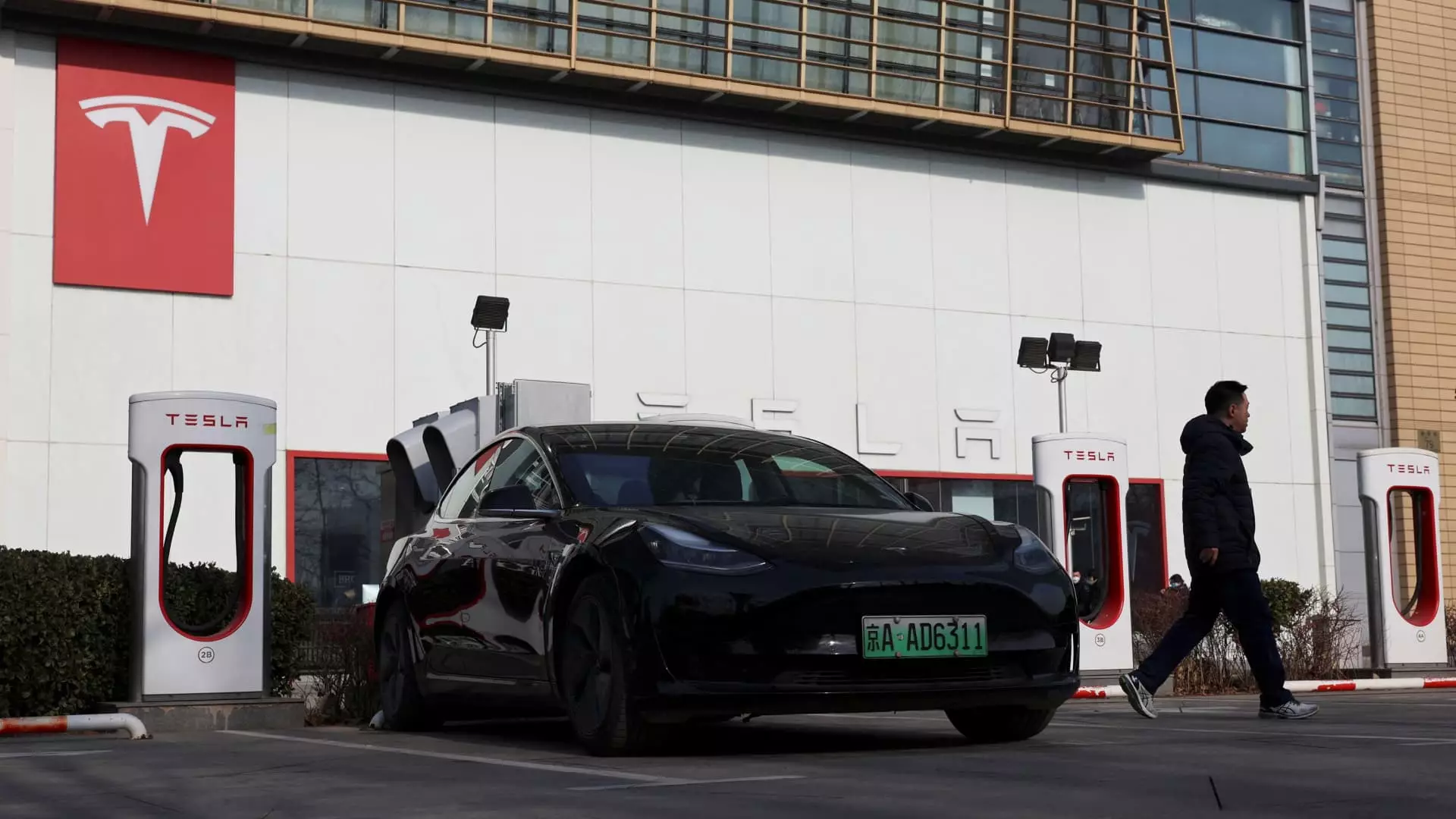The automotive sector in China is experiencing a significant transformation, reflecting broader trends in technology, consumer behavior, and policy direction. As 2025 approaches, experts predict that the domination of traditional foreign automakers will dwindle, paving the way for local players—particularly electric vehicle manufacturers—to strengthen their market presence. In this article, we will dissect the implications of these developments and examine the roles various companies are poised to play in this evolving landscape.
China’s auto market has become a playground for innovation, and electric vehicles (EVs) have taken center stage. Analysts from Nomura have indicated that companies like BYD are not only solidifying their foothold but are also emerging as formidable forces in both domestic and global markets. BYD, for instance, has seen its market share soar to 16%, significantly up from 12% only a year prior. This shift represents not just a numerical increase but a paradigm shift in consumer preference towards homegrown brands that prioritize affordability and accessibility in the EV segment.
This growth trajectory places BYD as a prime candidate to lead the pack moving forward, especially as it has outperformed Tesla in revenue for the first time in the third quarter of 2023. While Tesla continues to manufacture more battery-only vehicles, BYD’s hybrid offerings, which represent a substantial portion of its sales, cater to a more diverse consumer base. As the market shifts, the strategies employed by these manufacturers will continue to evolve, informing our expectations for 2025 and beyond.
The Decline of Traditional Players
The outlook for foreign automakers does not appear bright as the market realigns itself with local innovations. Companies like General Motors are grappling with financial losses and restructuring efforts within their joint ventures, highlighting the deepening challenges that legacy brands face in a rapidly changing environment. With a decline in market share and increasing operational costs, the traditional models that once dominated are proving inadequate in the face of new energy demands.
Moreover, the data reveals that GM’s local joint ventures, which previously held a competitive stance, are faltering with diminishing market shares that struggle to rival those of homegrown competitors like BYD and Geely. The situation raises urgent questions about the longevity of these foreign brands as they wrestle with consumer preferences that increasingly favor electric and hybrid vehicles over conventional internal combustion engines.
While traditional automakers fight for relevance, new entrants and smaller players are also vying for a piece of the electric vehicle pie. Geely, for example, has a foothold with an 8% share in the market. Analysts are optimistic about Geely’s potential for growth, expecting an increase in sales due to its strong model launches and a strategic focus on electric vehicle technology. With a forecasted 22% growth next year, its aggressive push is indicative of the shifting dynamics where local brands are positioning themselves to capitalize on the EV boom.
Other notable competitors include startups like Nio and Leapmotor, both of which have garnered favorable analyst ratings. Notably, Leapmotor’s focus on efficient R&D spending highlights a growing trend among newer companies prioritizing cost management while seeking to enhance their technological offerings. This strategic foresight presents a sharp contrast to the financial soak of legacy brands, where spending often burgeons unchecked.
The Role of Innovative Partnerships
A critical component of this transformation lies in partnerships and collaborations with tech companies. The case of Huawei and its foray into the automotive industry reveals an interesting direction in which traditional car manufacturers and tech entities converge. By collaborating with established automakers, Huawei is not just expanding into a new territory; it is fundamentally redefining how cars are marketed and sold in China. The expected sales forecast of 1 million units for cars powered by Huawei technology underscores the significant appetite for integrations between mobility and technology.
This cross-industry partnership wave further illustrates the versatility within the market; it’s not solely about manufacturing cars. Instead, the industry is evolving into a decentralization of expertise, with innovations in automotive technology becoming equally vital as car production in securing market leadership.
As we look toward 2025, the narrative of China’s automotive landscape underscores a crucial turning point. The dominance of established foreign automakers is waning, making room for a new era led by innovative local electric vehicle manufacturers. The interplay between these companies, along with an evolving consumer base that favors eco-friendly alternatives, signals that the next few years will be pivotal for the global automotive market. Companies that can adapt to these changes while addressing efficiency and consumer needs will likely identify the path forward, reinforcing the trend of local dominance in an ever-evolving automotive sector.

